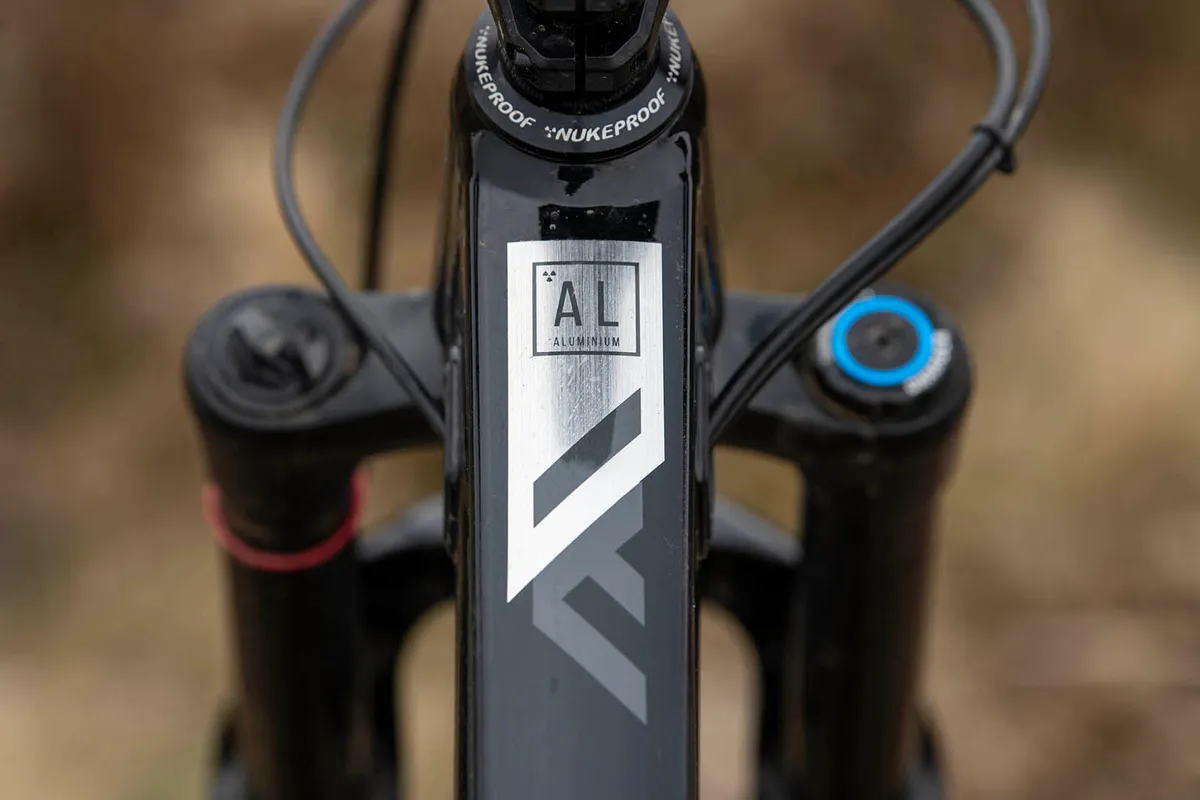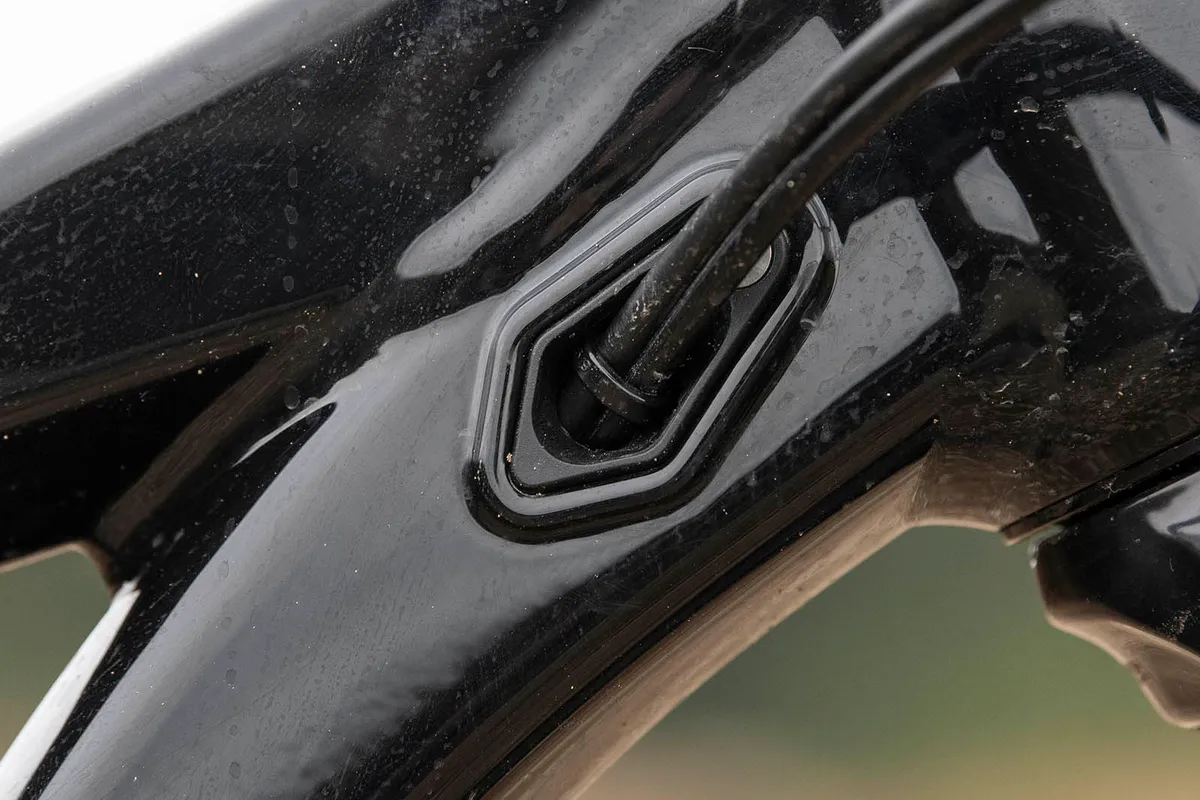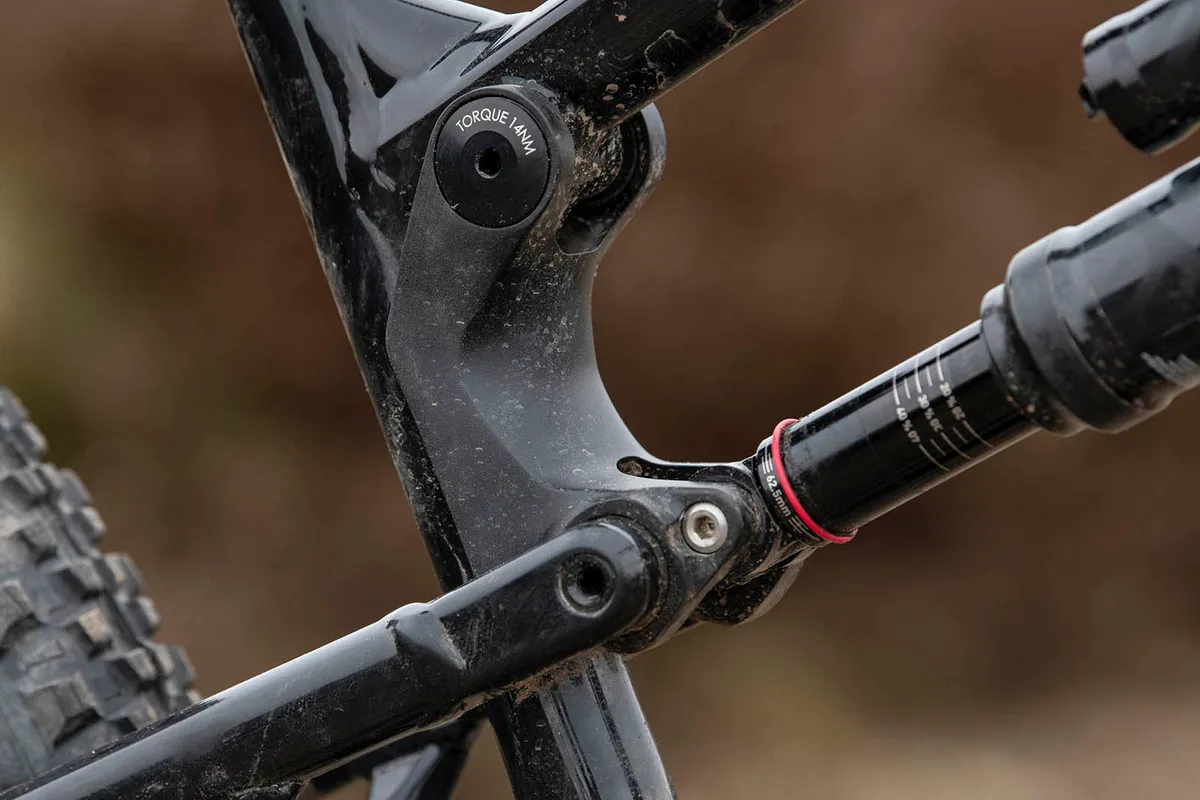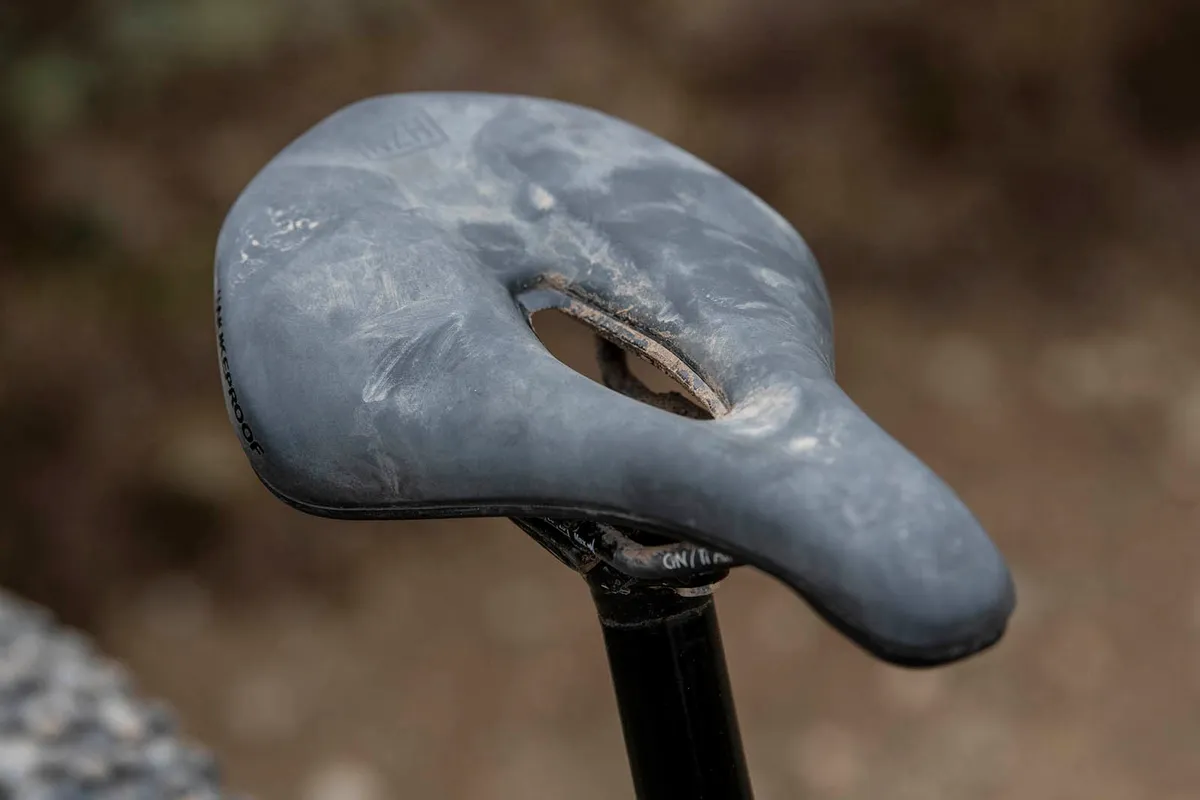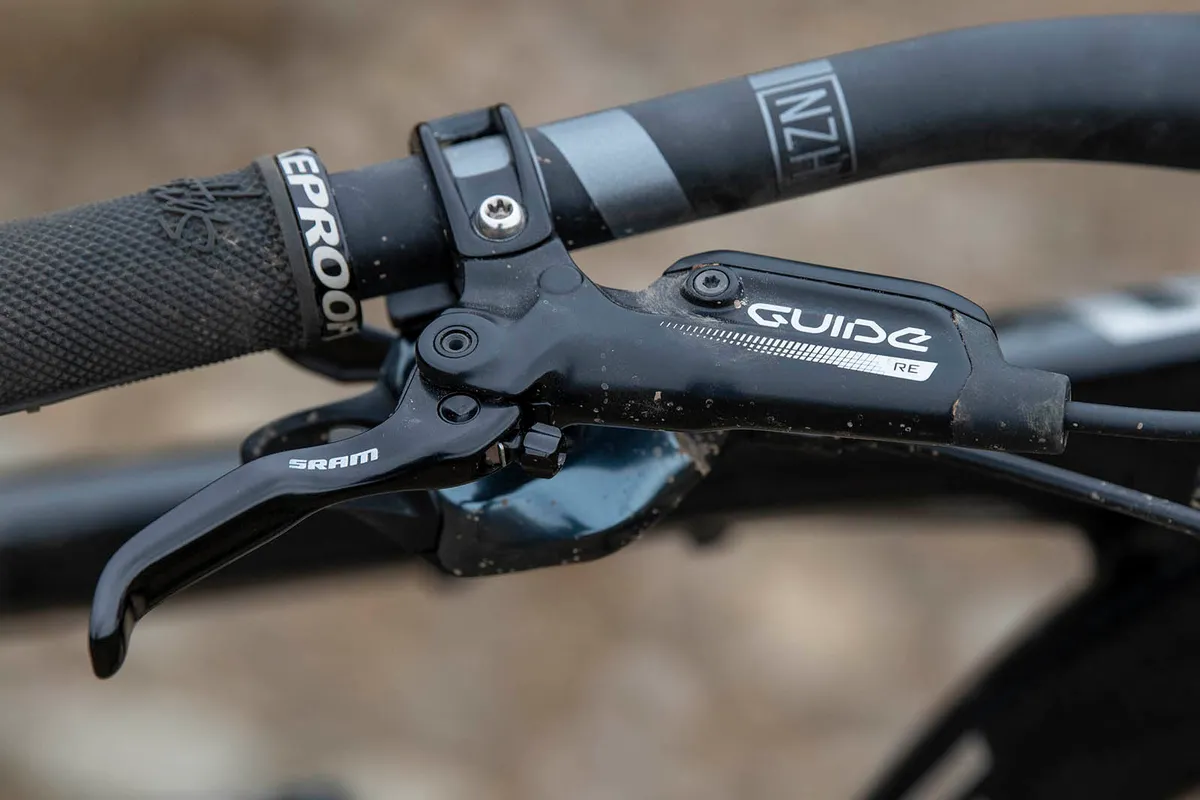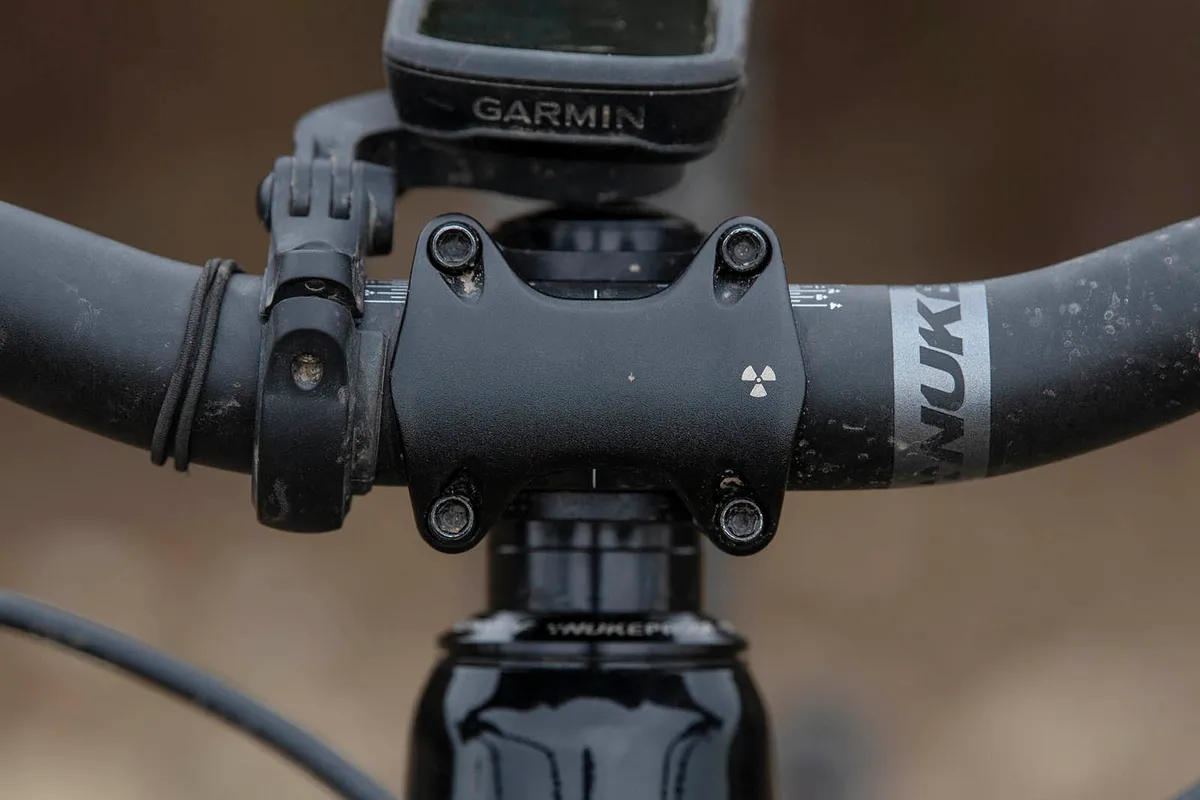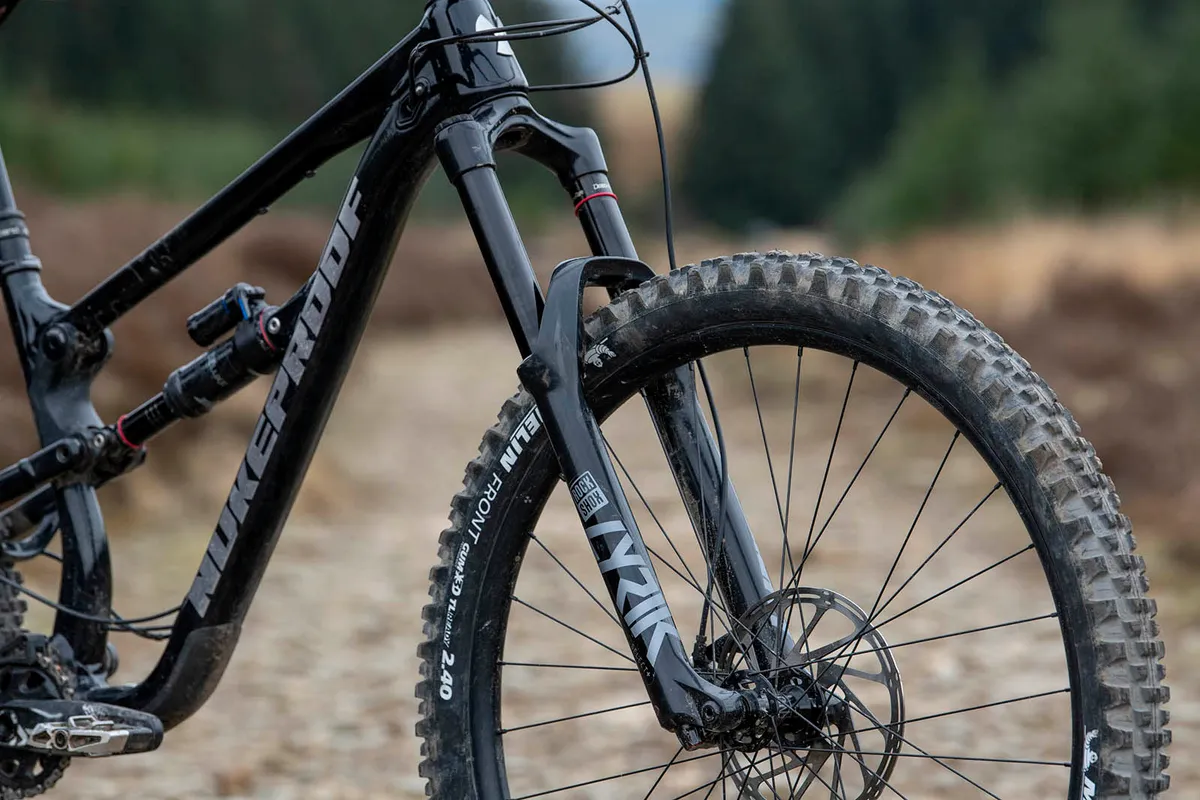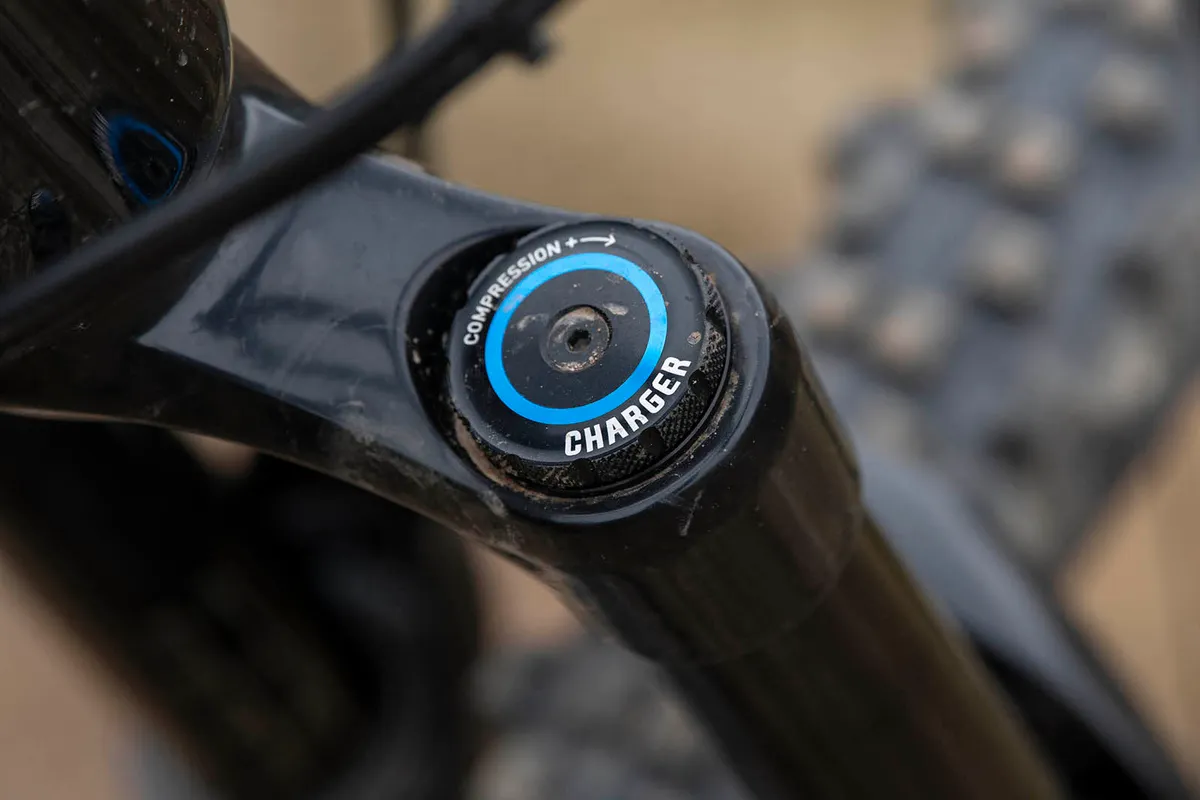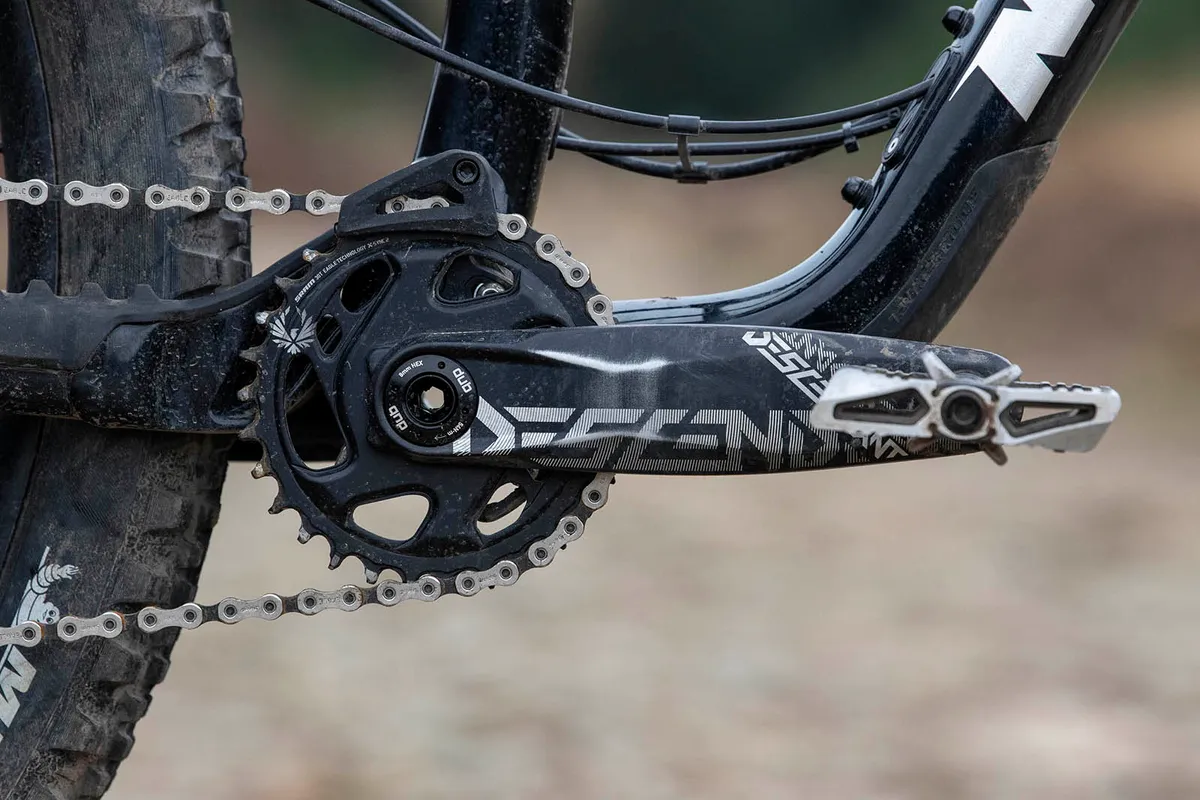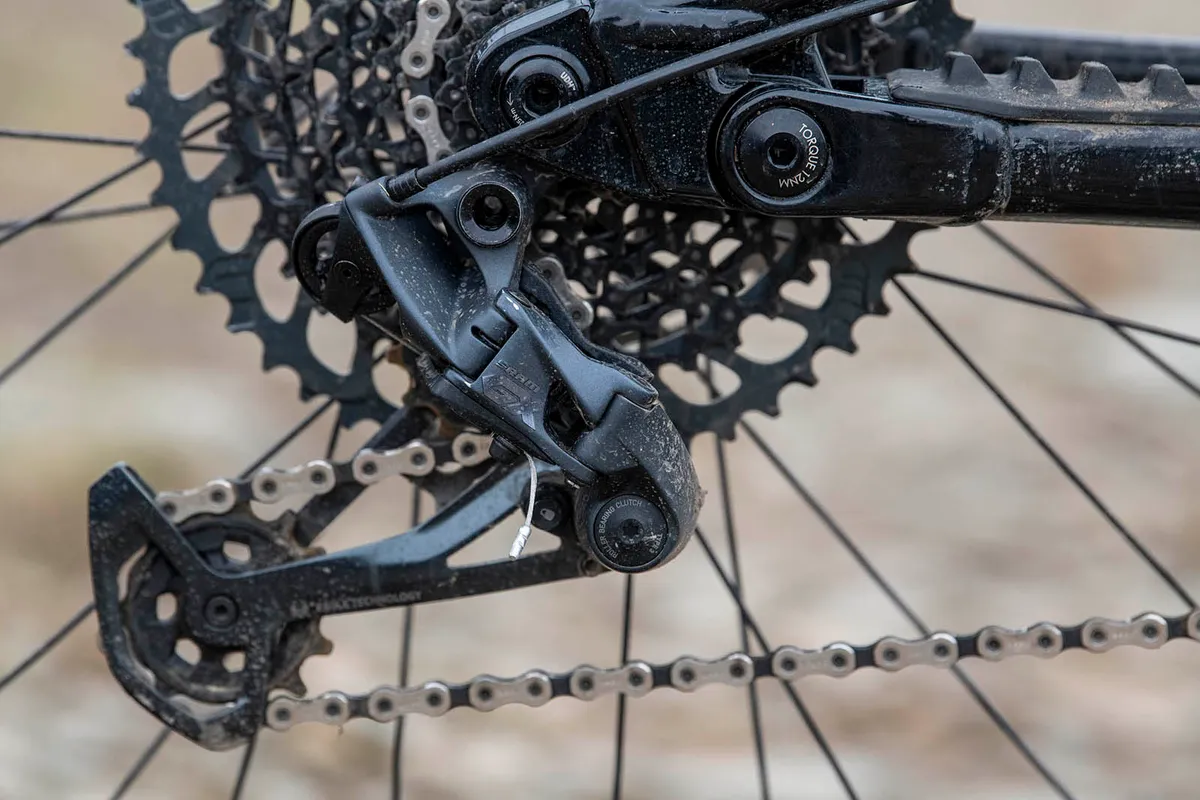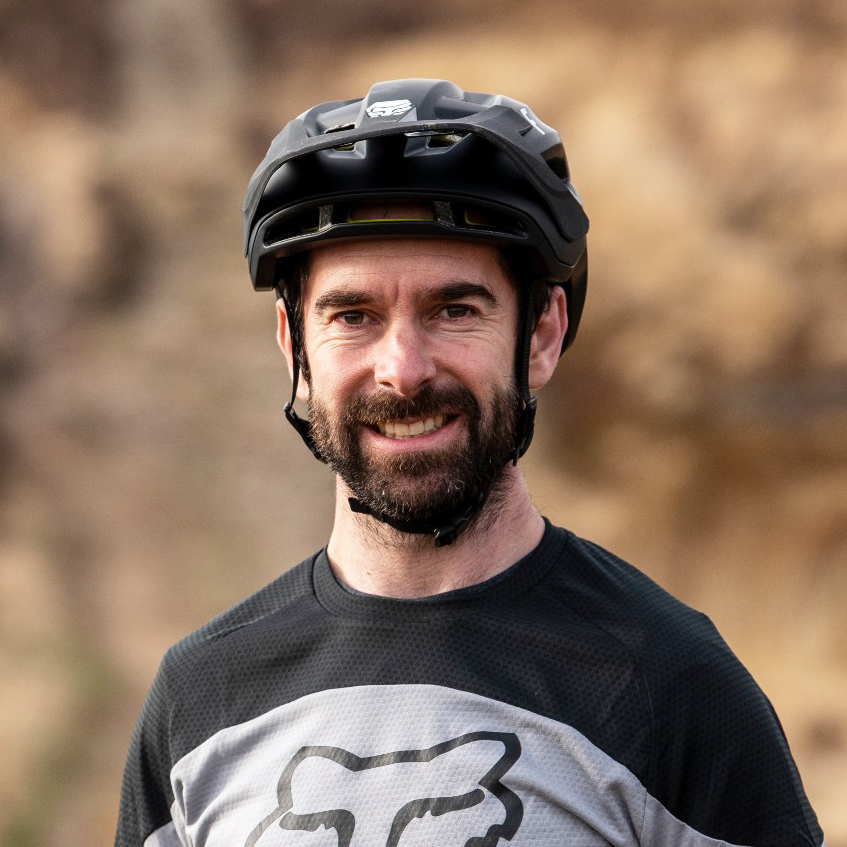We’ve already reviewed the latest carbon Nukeproof Mega but at £6,000, it’s out of most people’s reach. The alloy Mega seen here is the Pro build, the pricier of the two aluminium full-builds available, but is far less damaging to the bank balance (it’s still not cheap though).
It still manages to packs a punch when it comes to its spec sheet, though, and of course its numbers mirror that of the more expensive carbon version. But how will it behave on the trail?
Nukeproof Mega 290 Alloy Pro frame and suspension details
The latest Mega 290 pumps out 160mm of rear-wheel travel (the 650b version gets 165mm of travel) which, just like its predecessor, comes courtesy of the four-bar, Horst Link system.
How it’s actually delivered has changed quite a bit though. The link that drives the shock and wraps neatly around the seat tube has been extended and the kinematics overhauled almost entirely. While the previous bike felt like a monster truck with masses of comfort when things got really rough, this new bike is designed to be more dynamic.
The Nukeproof engineers upped the average leverage ratio and removed the regressive hump in the curve that made the previous Mega feel so plush and planted. They also reduced the overall progression to ensure the rider doesn’t get too beaten up when hammering into the final part of the bike’s travel.
These changes should equate to a more sensitive initial touch as you enter the first part of the rear travel, but quickly transition into a more supportive mid-stroke – something that's needed to provide a livelier feel.
While the frame shape doesn’t look wildly different, there are subtle changes, with more flow to the lines from the front to rear triangles. Less subtle are the changes to the massive down tube, which is heavily kinked before it meets the bottom-bracket junction.
This shaping allowed the Nukeproof team to gain enough space to fit a 750ml water bottle in place, which team riders and consumers were keen to include.
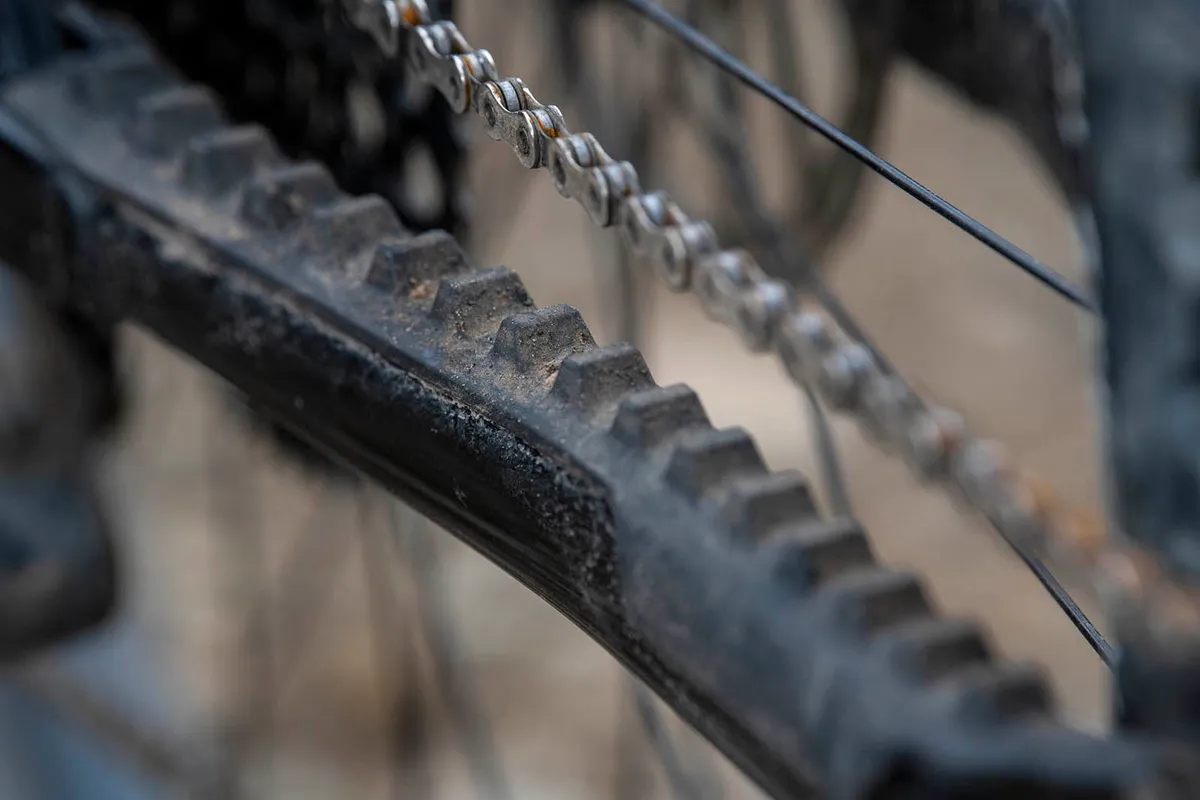
Smaller details include the use of the SRAM UDH (Universal Derailleur Hanger), which should make finding a replacement – wherever you are in the world – that bit easier. There’s also internal tubing to help with routing the cables – a big time-saver when it comes to maintenance.
There’s also plenty of integrated rubberised protection around the driveside chainstay and seatstay to help keep things quiet when trucking over rougher terrain.
Nukeproof Mega 290 Alloy Pro geometry
With five sizes available and Nukeproof’s detailed geometry chart, you’re in a better position than ever to find a bike that fits.
There's even specific saddle heights and offsets (the horizontal distance from the bottom bracket to the specified saddle height in the geometry chart) which, if you know your saddle height on your current bike, should help when buying. Hats off to Nukeproof here with this level of detail. You also get a choice of all models with 650b or 29in wheels.
As frame sizes increase, Nukeproof steepens the seat-tube angle in a bid to put riders of all sizes in the most comfortable and efficient position possible (increasing saddle height means the effective seat-tube angle gets more slack but by steepening the seat tube as the frame size increases, Nukeproof is able to counter this problem). My Medium test bike’s effective seat-tube angle measures 77-degrees, which is pretty steep.
The head angle is pretty slack at just under 64-degrees and helps contribute to the lengthy 795mm front centre. A 440mm rear centre (otherwise known as effective chainstay length and measured from the centre of the bottom-bracket axle to the centre of the rear wheel axle) pairs with a 455mm reach to provide a well-centred ride position when standing up on the pedals.
The previous Medium offered a 450mm reach and 450mm rear centre, which at times, especially with a 50mm stem, could leave you feeling too far over the front. This should help address that and add a bit more pep to the proceedings too.
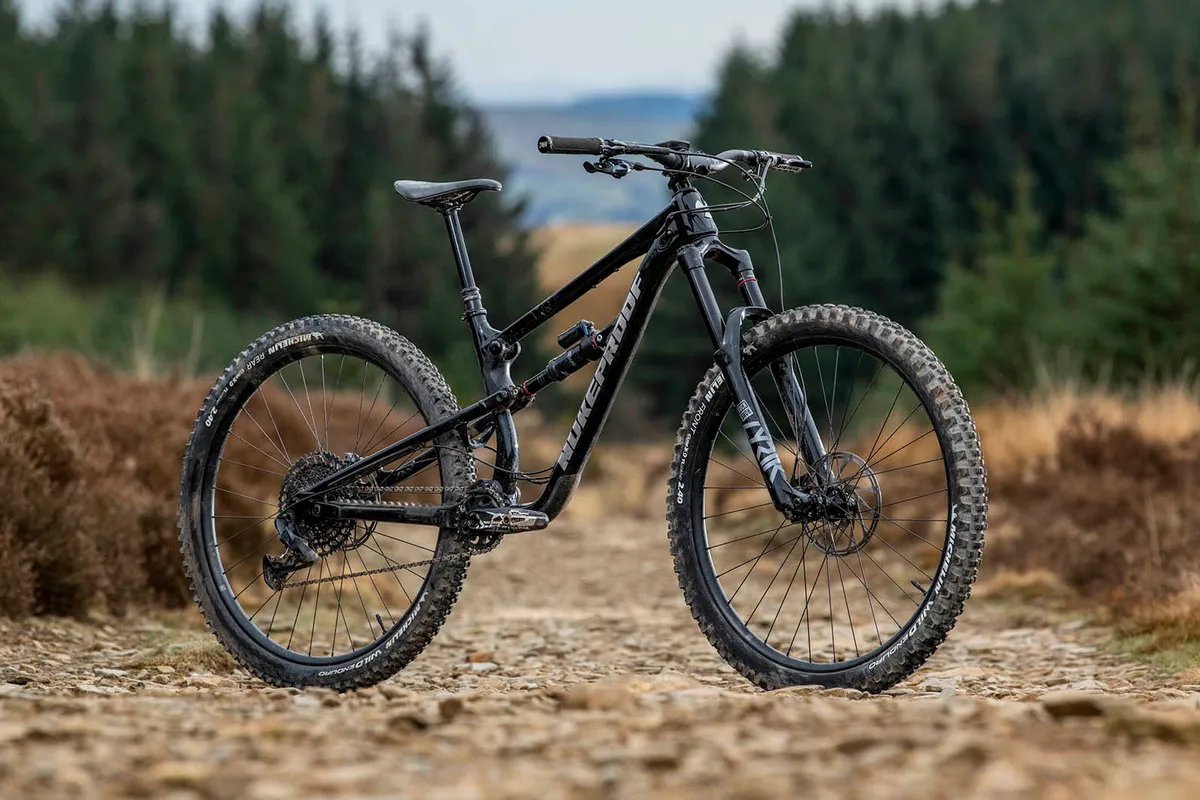
| | S | M | L | XL | XXL |
|---|---|---|---|---|---|
| Seat angle (degrees) | 77.5 | 77.5 | 78 | 78 | 78 |
| Head angle (degrees) | 64 | 64 | 64 | 64 | 64 |
| Chainstay (cm) | 44 | 44 | 44 | 44 | 44 |
| Seat tube (cm) | 38 | 41 | 44 | 47 | 50 |
| Top tube (cm) | 56.77 | 59.27 | 61.09 | 63.28 | 65.47 |
| Head tube (cm) | 10 | 10 | 12 | 13 | 14 |
| Fork offset (cm) | 4.2 | 4.2 | 4.2 | 4.2 | 4.2 |
| Trail (cm) | 13.2 | 13.2 | 13.2 | 13.2 | 13.2 |
| Bottom bracket drop (cm) | 3 | 3 | 3 | 3 | 3 |
| Bottom bracket height (cm) | 34.5 | 34.5 | 34.5 | 34.5 | 34.5 |
| Wheelbase (mm) | 1,197 | 1,222 | 1,251 | 1,275 | 1,299 |
| Standover (cm) | 72.2 | 72 | 72.1 | 72.1 | 72.7 |
| Stack (cm) | 62.12 | 62.12 | 63.92 | 64.82 | 65.73 |
| Reach (cm) | 43 | 45.5 | 47.5 | 49.5 | 51.5 |
Nukeproof Mega 290 Alloy Pro specifications
Like many brands, Brexit has shunted Nukeproof prices up a little over the past few months, but thankfully, the Alloy Pro build still offers some great kit for the money.
A RockShox Lyrik Select+ fork up front comes equipped with its more refined Charger 2.1 RC damper, and gives plenty of external low-speed compression and rebound damping adjustment. Plus you can dial in the air spring using the supplied volume spacers, which are quick and easy to fit. This particular fork has 170mm travel and uses a 42mm offset.
The Lyrik is matched with a Super Deluxe Select+ shock at the rear. While you can’t externally tune the low-speed compression damping on the shock, there is a threshold lever, which is easy to reach and firms the shock up for long drags up hill. Like the fork, it’s easy to fit the volume spacers to alter how the air spring behaves.
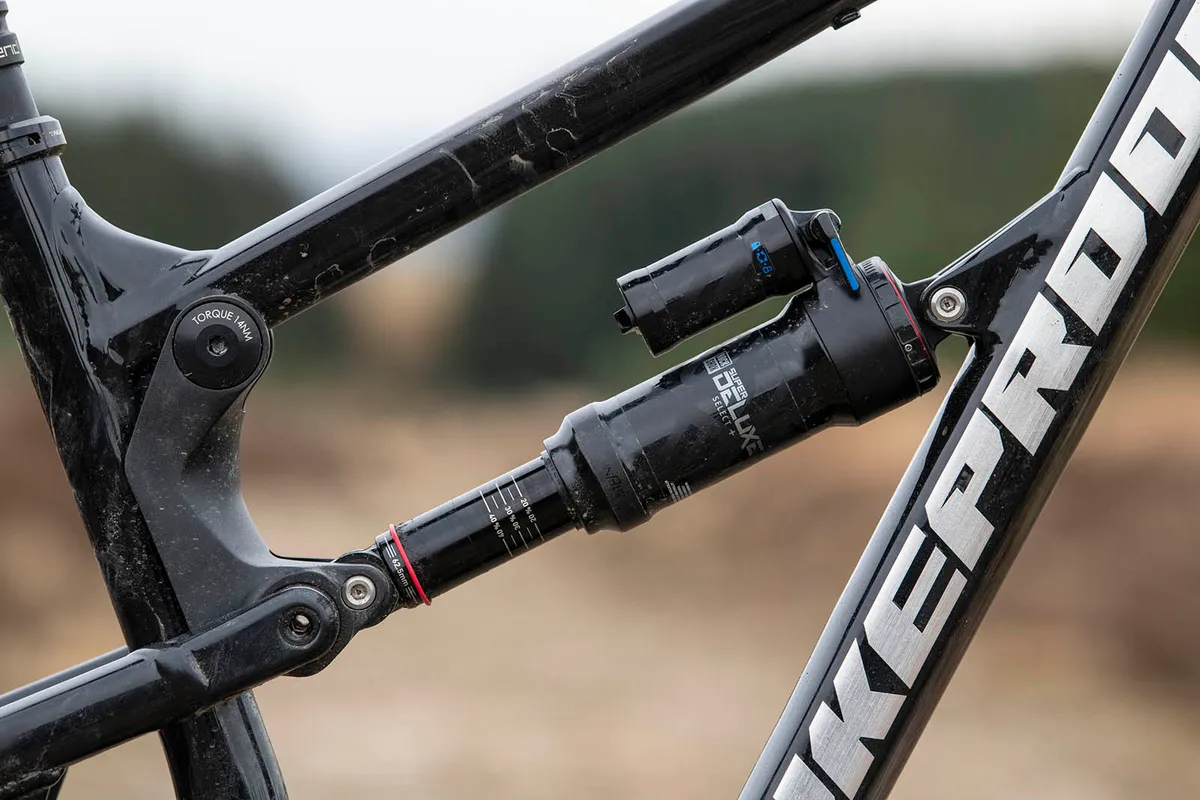
While other bikes of this nature (and price) tout SRAM’s Code brakes, the Mega uses slightly cheaper Guide REs. These use the previous generation's Code caliper, but are paired with the Guide lever. They might not have the same refined feel of the current Code’s but they’re still powerful.
Nukeproof supplies its own Neutron V2 wheels, which offer a 29mm internal rim width. These are wrapped with Michelin’s front and rear specific Wild Enduro tyres, which are 2.4in wide and use Gum-X rubber compound.
It also equips the bike with its own bar, stem, grips and saddle. Everything is well made and has worked well throughout testing, though my backside isn’t a fan of the Horizon Enduro saddle.
Nukeproof Mega 290 Alloy Pro ride impressions
To test the Mega’s all-round enduro credentials, I rode it on a mix of trails and tracks. These varied from steeper, natural trails covered in tree roots with deep muddy ruts and little in the way of easy-to-come-by traction. I then ventured into bikepark territory for higher speeds and more frequent hits. Here, the Mega was faced with less gradient, but much longer, faster and rougher tracks with no shortage of rocks ready to unsettle it.
Set-up was easy, though I did reach for the shock pump a second time as I dabbled with running a little under 30 per cent sag in the rear shock to see how the bike behaved. Otherwise I got things dialled in quickly and felt comfortable aboard the Mega in no time at all.
Nukeproof Mega 290 Alloy Pro climbing performance
Uphill, the Mega pedals well, with little in the way of unwanted suspension bob when seated. Faced with steeper inclines, I reached for the shock’s lever to firm things up a bit, ensuring I could maintain that steep seat angle. The effective top tube isn’t the longest, partly as a result of the steep seat tube, so when clawing up sharper pitches and leaning further forward, it doesn’t feel like the roomiest of cockpits, though at 172cm (5ft 8in) I never felt cramped or uncomfortable on the Medium.
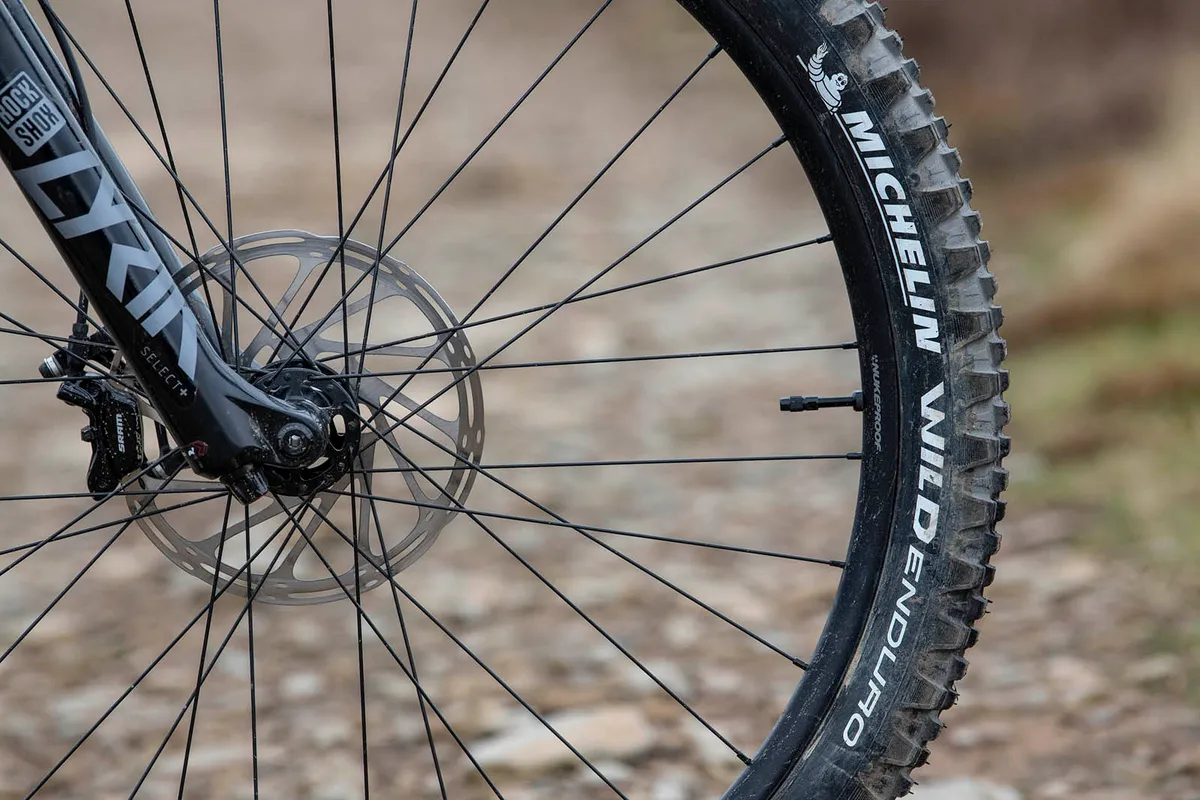
On smoother tarmac drags, the tyres don’t feel like they roll particularly quickly. This is by no means the end of the world and I will always take traction over rolling speed if given the choice.
That said, thanks to the massive 10-52t cassette, I winched my way up every hill I pointed the Mega at, even when fatigued, so it’ll get you to the top comfortably if you put the effort in.
Nukeproof Mega 290 Alloy Pro descending performance
The latest Mega is a different beast to its predecessor. The changes to how that 160mm of rear-wheel travel is delivered are obvious. While the old bike would sink in and settle deep into its mid-stroke, the updated version feels more supportive and sprightly. This gives the bike more get up and go when hammering along mellower trails that could feel arduous or dull on the old bike. Now, the new bike feels more exciting and playful.
The geometry is better balanced too and while I’ll never be Sam Hill through the turns, I felt confident pitching the Mega into a high-speed corner, staying off the brakes and letting bike work away beneath me.
It helps that the Michelin tyres have a prominent shoulder tread that’s eager to bite into soft soil and let you carve a tight turn without flinching. And it helps that the tyres are well damped and controlled too, which only boosts the bikes high-speed credentials when skimming through rock-strewn sections of trail in near silence.
The rubber isn’t perfect though and can start to feel a little skittish on hard pack surfaces in the wet, especially compared to its super-consistent Maxxis counterparts found on many of the Mega’s closest competitors.
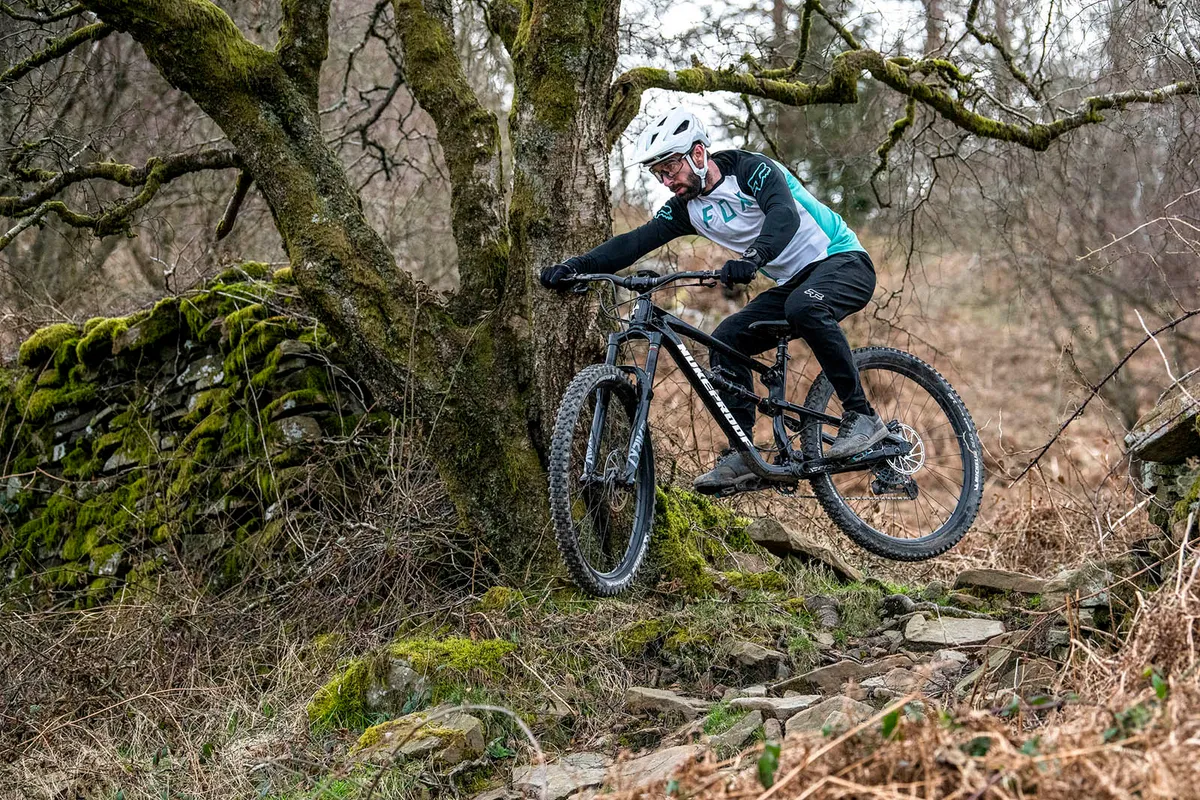
While there’s no disputing that the Mega has more of a spring in its step when compared to the 2020 model, it doesn’t offer quite the same pop as the longer travel Whyte G-180 or the accurate, momentum-carrying monster that is the Trek Slash 8. That’s not to say you can’t throw the Mega around the trail, it just feels more glued to the ground and takes more effort to loft it over the same gaps or spring from line to line.
Despite those changes, the Mega is still a formidable beast in the rough stuff. Blast into a high-speed rock garden at pace and the Mega isn’t afraid of getting stuck in. The balanced suspension does a good job of keeping all the chaos separate from the rider, ensuring your hands and feet stay fresh when tackling long, chunky tracks at speed.
If you’re willing to really work the trails undulations, thanks in part to the support through the back end, generating speed and maintaining it isn’t as energy-sapping as it was on the old bike, though it doesn’t come as easy as it does to the Whyte or the Trek. There’s no denying that it’s still composed, controlled and fast though.
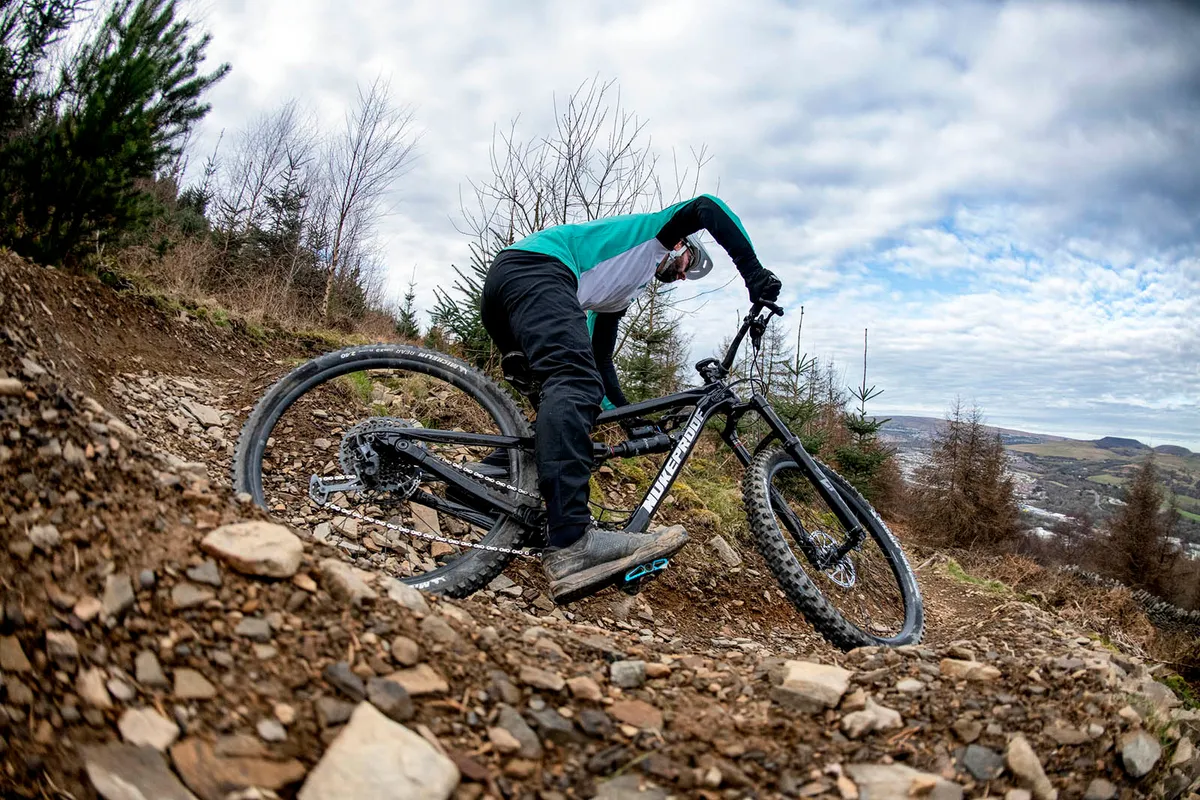
And how does the alloy frame compare to the carbon? That's tough to properly answer, because the carbon bike I tested previously has different wheels, a carbon bar and the stiffer RockShox Zeb fork up front. The carbon bike feels more direct in certain situations, though some of this could come down to the burlier fork – the Lyrik might not always feel quite as pin-point but it’s still smooth and forgiving. Either way, Nukeproof has done a great job with the latest Mega (in alloy and in carbon) and this particular model punches well above its price tag.
Nukeproof Mega 290 Alloy Pro bottom line
Nukeproof has managed to up the performance of the Mega, making it livelier and more fun to ride, but still as capable when the hits come thick and fast. It’s an easy bike to ride with great geometry and well-balanced suspension.
It’s also a real plus that Nukeproof offers five frame sizes with lots of detail in the geometry charts to ensure you can select the right bike for you.
The Alloy Pro build seen here might not represent the best value for money in the market, but there's clearly money spent in all the right places, which helps if you’re looking to take this bike straight from shop floor to race track.
Thanks to…
A massive thank-you to BikePark Wales for granting us access to its trails despite the bike park being closed to the public.
Cheers also to Fox clothing for sorting the kit for the photo and video shoots and Garmin for sorting us out with bike computers to log the many miles of testing.
And not forgetting Muc-Off, for its help keeping the bikes washed and lubed throughout testing.
The contenders | Enduro Bike of the Year
With 150mm to 180mm of travel, enduro bikes are designed to be hurled down the roughest downhill tracks but still be pedalled back to the top. The best enduro bikes are still fun when riding less full-on terrain, too.
The following bikes were shortlisted for our Enduro Bike of the Year award, with a price range of £3,450 to £4,198.
- Cotic RocketMAX Gen3 Silver SLX
- Kona Process 153 DL 29
- Nukeproof Mega 290 Pro
- Scott Ransom 920
- Trek Slash 8 (winner)
- Vitus Sommet 29 CRX
- Whyte G-180 RS 29er V1
- YT Capra Shred 27.5
Product
| Brand | nukeproof |
| Price | 5300.00 AUD,4700.00 EUR,3700.00 GBP,3800.00 USD |
| Weight | 15.1900, KILOGRAM (M) - |
Features
| Fork | RockShox Lyrik Select+, with 170mm travel |
| br_stem | Nukeproof Neutron AM, 45mm |
| br_chain | SRAM GX Eagle |
| br_frame | 6061-T6 aluminium, with 160mm travel |
| Tyres | Michelin Wild Enduro Gum-X TS TLR 29x2.4 (fr) and Michelin Wild Enduro Gum-X TS TLR 29x2.4 (r) |
| br_brakes | SRAM Guide RE (200mm/180mm rotors) |
| br_cranks | SRAM Descendant 7K |
| br_saddle | Nukeproof Horizon Enduro |
| br_wheels | Nukeproof Neuron V2 |
| br_headset | Nukeproof |
| br_shifter | SRAM GX Eagle |
| br_cassette | SRAM XG-1275 10-52t |
| br_seatpost | Brand-X Ascend, 150mm |
| br_gripsTape | Nukeproof Sam Hill Lock-On |
| br_handlebar | Nukeproof Horizon V2, 780mm |
| br_rearShock | RockShox Super Deluxe Select+ |
| br_bottomBracket | SRAM DUB |
| br_availableSizes | S, M, L, XL, XXL |
| br_rearDerailleur | SRAM GX Eagle |
